How to Choose a Cross-Border Financial Advisor
By Peggy Creveling, CFA, and Chad Creveling, CFA
Choosing a cross-border or offshore financial advisor carefully is as important as choosing a doctor or lawyer. You'll want to find someone who is competent and trustworthy and who works in your best interest. To help you find the financial advisor who may be right for you (as well as to protect you from those who could do harm), we've put together some characteristics to look for in choosing a cross-border financial planner.

- Transparency and full disclosure: With the list below as a guide, research your advisor, don't be afraid to ask questions, and get details in writing. If you find the answers confusing, it may be that the advisor is trying to cloud the issue—not a good sign. Have the planner provide you with a written agreement that explains the services to be provided and the fee structure.
- Relevant experience: Find out the planner's work experience. You want to know if your potential counselor has just set up shop after leaving an unrelated field. Does the advisor have experience working with clients in situations like yours? Or does the advisor offer a “one size fits all” solution?
- Licensing or registration: To protect consumers, most countries require that advisors operating in their jurisdiction be registered or licensed. Contact the relevant regulator directly to ensure that your advisor is actually regulated. Be sure that it's the advisor you're working with who is regulated, as opposed to an outside company within the same group, or a third-party supplier of financial products.
Remember that with the exception of the U.S. Securities and Exchange Commission, most outside regulators (including the U.K.'s Financial Services Authority) do not regulate firms or individuals giving investment advice outside their borders. So if you're misled, receive inappropriate advice, or are overcharged by individuals or firms in the country where you live, an offshore regulator will not be able to help you. - Services offered: Check to see which services the financial planner offers and how the services are provided. In some cases, long lists of advertised services are met with the sale of a few financial products. If you're an American, make sure the advisor plans for how you'll be taxed over the long run—the IRS has punitive rules for offshore investments and insurance products.
- Professional qualifications: Research your potential advisor's qualifications. Don't be satisfied until you understand what each qualification is and what's involved in obtaining it. Contact the granting organization to make sure your planner has the qualification in question and that the status is current.
- Avoid being locked in to a long-term arrangement or buying a scheme with surrender charges: There's rarely a benefit to having your money tied up for long periods or to being forced to make contributions or face penalties. Be sure that you will have control of your funds and that you can easily access your money if needed.
- How is the advisor paid? Does he or she receive commissions on products sold to clients? If so, the advisor is rewarded only when you buy a product, and in the offshore world, this can be an expensive insurance-wrapped investment scheme. A product salesperson may have very different objectives from an advisor who gets paid only for providing advice.
- Hidden fees: While front- or back-end commissions are usually disclosed, additional fees and commissions often are not. In some cases, investments can have several layers of fees, with the basic management fee that is usually disclosed being only part of the total amount involved.
- Professional affiliations: Find out which professional organizations the financial planner belongs to and how credible they are. Professional planners typically affiliate with networks of specialists in a variety of jurisdictions that provide additional legal and tax information. Be wary of firms that say they have all the expertise in house or try to pass off sales or distribution offices as a professional network.
This article is a revised and updated version of ones that have appeared previously on www.crevelingandcreveling.com
About Creveling & Creveling Private Wealth Advisory
Creveling & Creveling is a private wealth advisory firm specializing in helping expatriates living in Thailand and throughout Southeast Asia build and preserve their wealth. The firm is a Registered Investment Adviser with the U.S. SEC and is licensed and regulated by the Thai SEC. Through a unique, integrated consulting approach, Creveling & Creveling is dedicated to helping clients cut through the financial intricacies of expat life, make better decisions with their money, and take the steps necessary to provide a more secure future.
Copyright © 2021 Creveling & Creveling Private Wealth Advisory, All rights reserved. The articles and writings are not recommendations or solicitations, and guest articles express the opinion of the author; which may or may not reflect the views of Creveling & Creveling.

